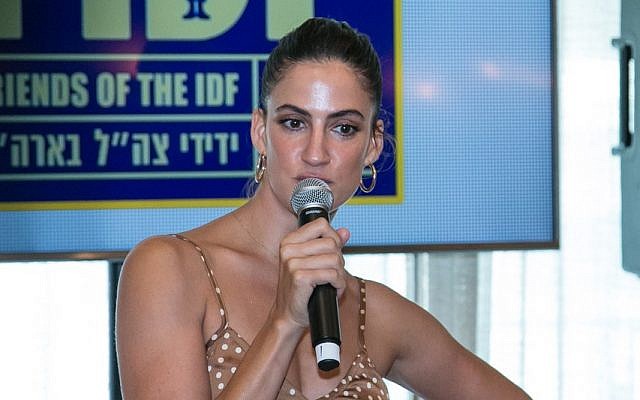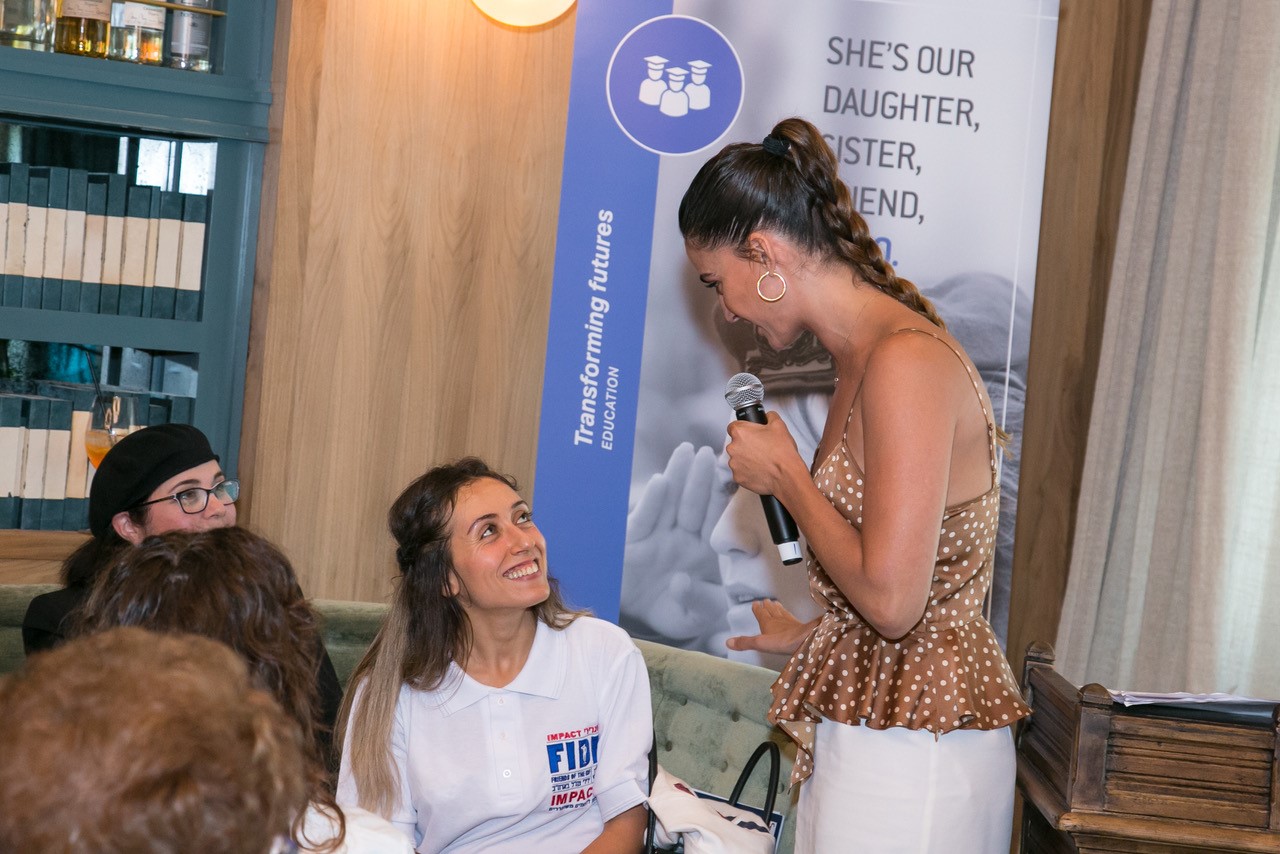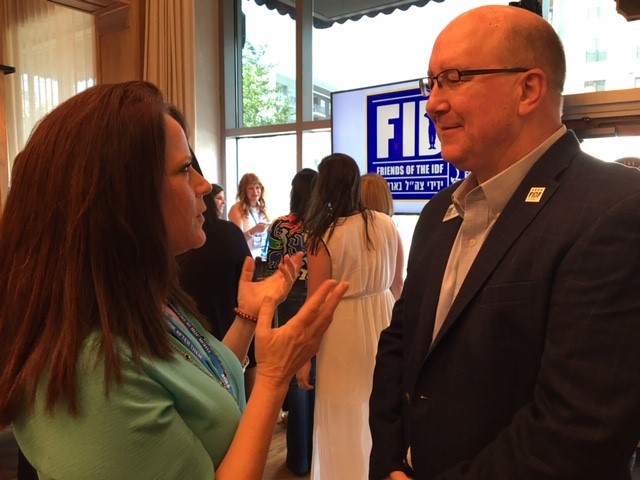FIDF Welcomes Soldier-Scholar, Combat Actress
The Friends of the Israel Defense Forces hosted a pair of special guests at an Aug. 28 women's brunch.

A soldier-turned accountant and an actress who plays a soldier on Netflix were the guest speakers Aug. 28 at a women’s brunch of the Friends of the Israel Defense Forces.
As the recipient of an FIDF IMPACT! scholarship, 30-year-old Ligal Atias told the 110 women gathered at The Select in City Springs of her path from Hebrew University to a career. “My first year was not easy. Tuition was very high, and my parents couldn’t help me with this,” said Atias, an officer in a combat intelligence unit commanding 120 soldiers before college.
“After a few months I decided to stop my studies because I couldn’t continue to pay. … I must admit that I could not do it alone. … These days, because of FIDF and IMPACT!, now I’m an accountant. I finished my studies and I’m working at the Ernst & Young office,” to which she received applause. Atias also met her fiancé through her studies. “I must say thank you to the FIDF, because I now get married,” which inspired laughter from the audience.

Next up was the main attraction, actress Rona-Lee Shim’on, who plays the sole female member of an Israeli counter-terrorism unit in the Netflix show, “Fauda,” which she explained means chaos. She thanked Atias for her inspiring story and then, speaking from various vantage points in the restaurant, shared her own.
Shim’on, born in Ramat Gan, began ballet lessons at 3 years old and continued through high school. “I danced almost all day long.” After school, she’d rest for an hour and have four or five hours of ballet training up to five days a week until 9 or 10 p.m. “That was my refuge and how I expressed myself. It’s what I knew.”
When she was 16, she was invited to test for the Army. She was very excited to serve because she had heard for so long about a great uncle who fought for a guerilla unit before Israel was born and was caught in a failed secret operation and lynched.
“So for me to grow up with that story in my household, I felt not only a national duty to go into the Army, but also like a generational duty. You know it’s not very much a choice for us; you have to go.”

But her life took a sharp turn when performing for Jewish communities in Germany and Holland and watching the professional dancers from a national ballet company in class and rehearsals. “I remember just being in such awe. I’ve never seen such beauty in my life, … and I just cried for three hours.” That’s when she chose dance over military service. “I knew, on the one hand, that I had to continue pursuing my dream, even if the very thing itself was going to make me compromise my Israeli identity. And it was so hard to tell my family and friends that’s what I’m going to do.”
With a full scholarship to the national ballet school in Amsterdam, she left Israel two weeks after high school finals and danced for almost two years there before returning to Israel to dance professionally.
Two years into her first job, the dance company closed, but the dancers were asked to audition for “So You Think You Can Dance.” And she remembered thinking at the time, “Why would anyone watch a dancing show? They’re not coming to the theater to watch us dance, why would they sit in their house and watch people dance?” But it was 15 years ago, and there were only three national TV channels in Israel, she said. “They didn’t have to watch us, but they did. And the show was a hit.

“I think what it did, which made us very happy, was I think bringing the dance world from its artistic basement to primetime television.”
For the first time, Shim’on found herself being asked to talk about her life and “it wasn’t something I knew how to do. I started finding my own voice. … I was so excited to have something to say that now I wanted to know how to say and what to say.”
So she went to theater school for the next three years, and then performed in such plays as “Cabaret” and “Chicago,” with her latest role as Anita in “West Side Story.”
Four years ago, she received a call from her manager about “Fauda.” “I finally got to speak for a woman who is in a manly militant unit. … To tell that story, to me, was just such a privilege and an honor.”
The audience then got to see a few powerful and edge-of-your-seat clips from the show. In the first scene, Nurit shows her vulnerability preparing for combat; the next shows her firing into a crowd, which eventually overtakes and injures her before she is rescued; and the final hospital bed scene shows her determination to return to combat.
The FIDF brunch ended with a Q & A. When asked if she gets emotional after filming, she said there are times “I couldn’t talk for three days and was drained physically.” In terms of realism, she said, “Unfortunately, the reality of these units is much worse than what we see, … and it’s something these soldiers are taking with them for life.”
“Fauda” will be back on Netflix in March.



comments